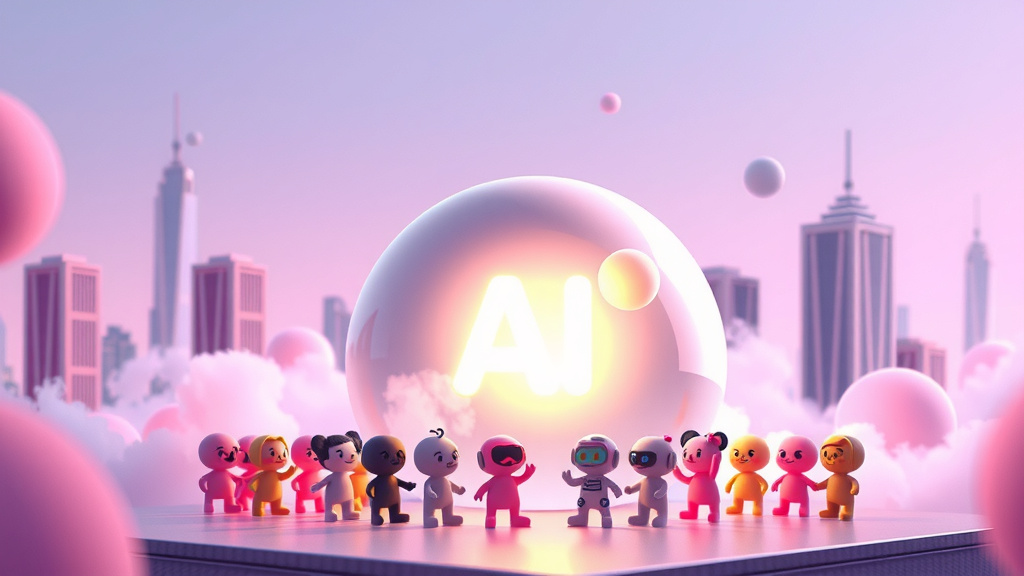The world of technology and business is undergoing a significant transformation, driven by the rapid advancement of artificial intelligence (AI). Recent developments have highlighted the impact of AI on various industries, from job layoffs to innovative solutions. This news brief will delve into the key stories, exploring the effects of AI on companies, the introduction of new AI-powered tools, and the legal restrictions governing AI in the workplace.
Workday Lays Off 1,750 Employees to Focus on Artificial Intelligence
Workday, a California-based company, has announced the layoff of approximately 1,750 employees, representing 8.5% of its workforce. The decision is part of the company's efforts to prioritize investments and advance its focus on durable growth, with a particular emphasis on artificial intelligence. Workday CEO Carl Eschenbach stated that the environment demands a new approach, and the company must adapt by thinking differently and investing strategically.
Smarketing Cloud Launches Flo: The AI Agent Revolutionizing SME Sales and Marketing Automation
Smarketing Cloud has introduced Flo, an advanced AI agent designed to transform sales and marketing automation for small and medium-sized enterprises (SMEs). Flo empowers businesses with omni-channel engagement, personalized marketing, and seamless CRM integration, delivering enterprise-level efficiency at an SME-friendly cost. The launch of Flo positions Smarketing Cloud as a leader in delivering cutting-edge solutions for SMEs.
Artificial Intelligence Will Rewrite the Rules of Business
According to Rishad Tobaccowala, author and advisor, AI will dramatically change the business landscape, enabling companies to achieve $1 billion in revenue with fewer than 100 employees. Tobaccowala stresses that AI will reshape entire business models, introduce new competitive landscapes, and require companies to adapt or be left behind. He advises companies to prioritize their AI initiatives, grapple with the implications for their workforce, and be prepared for opportunities and threats from unexpected quarters.
Legal Restrictions Governing Artificial Intelligence in the Workplace
The use of AI in the workplace is becoming increasingly prevalent, with 99% of Fortune 500 companies and 70% of overall employers using some form of AI to screen or rank candidates for hire. However, the legal restrictions governing AI in the workplace are still evolving, and companies must be aware of the potential risks and challenges associated with AI adoption.
AI Controversy in the Film Industry
The use of AI in the film industry has sparked controversy, with accusations of AI-generated artwork being used in theatrical posters. Marvel has responded to the controversy, denying the use of AI in the creation of a new poster for The Fantastic Four: First Steps. The incident highlights the need for transparency and accountability in the use of AI in creative industries.
Google Pulls Incorrect Gouda Stat from its AI Super Bowl Ad
Google has edited its AI response in a Super Bowl commercial to remove an incorrect statistic about cheese. The incident highlights the importance of ensuring the accuracy of AI-generated content and the need for reliable sources to support AI-driven decisions.
Key Takeaways
- AI is driving significant changes in the business landscape, enabling companies to achieve greater efficiency and growth.
- The adoption of AI requires companies to adapt and prioritize their investments, with a focus on strategic areas such as innovation and customer needs.
- The use of AI in the workplace is governed by evolving legal restrictions, and companies must be aware of the potential risks and challenges associated with AI adoption.
- Transparency and accountability are essential in the use of AI in creative industries, and companies must ensure the accuracy of AI-generated content.
- The impact of AI on employment will be significant, with some companies laying off employees to focus on AI-driven initiatives, while others will need to retrain and reorganize their workforces to realize the full potential of AI.
Sources
- Workday lays off 1,750 employees; company to focus on artificial intelligence, CEO says
- Smarketing Cloud Launches Flo: The AI Agent Revolutionizing SME Sales and Marketing Automation
- Artificial Intelligence Will Rewrite the Rules of Business, Says Rishad Tobaccowala
- Legal Restrictions Governing Artificial Intelligence in the Workplace
- Felicity Jones Talks ‘The Brutalist’ AI Controversy, Finally Finding “Distinctive” Work With Brady Corbet & Plans For Her F1 Series
- AI Was Nearly Used to Recreate the French Voice of Sylvester Stallone. Now, European Dubbers Are Doubling Down on the Need for Protection
- Marvel responds to AI controversy over The Fantastic Four: First Steps
- Google pulls incorrect Gouda stat from its AI Super Bowl ad
- Workday erases 8.5% of workforce because of...AI
